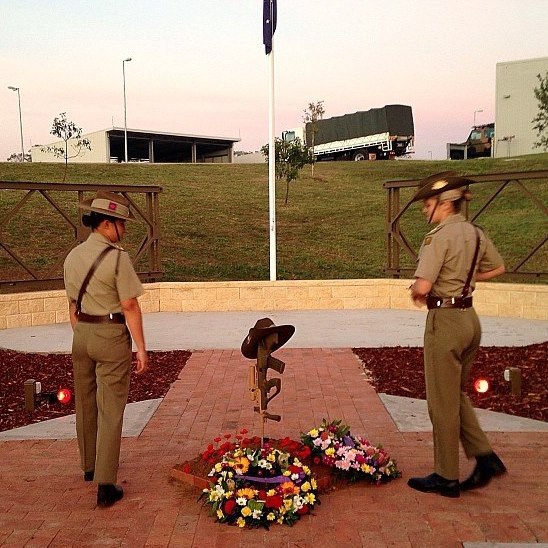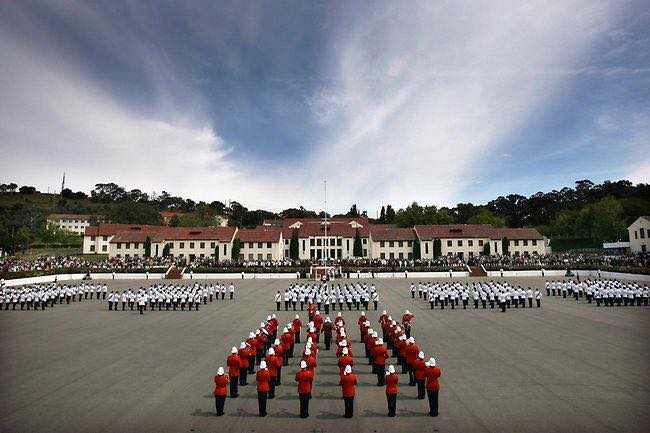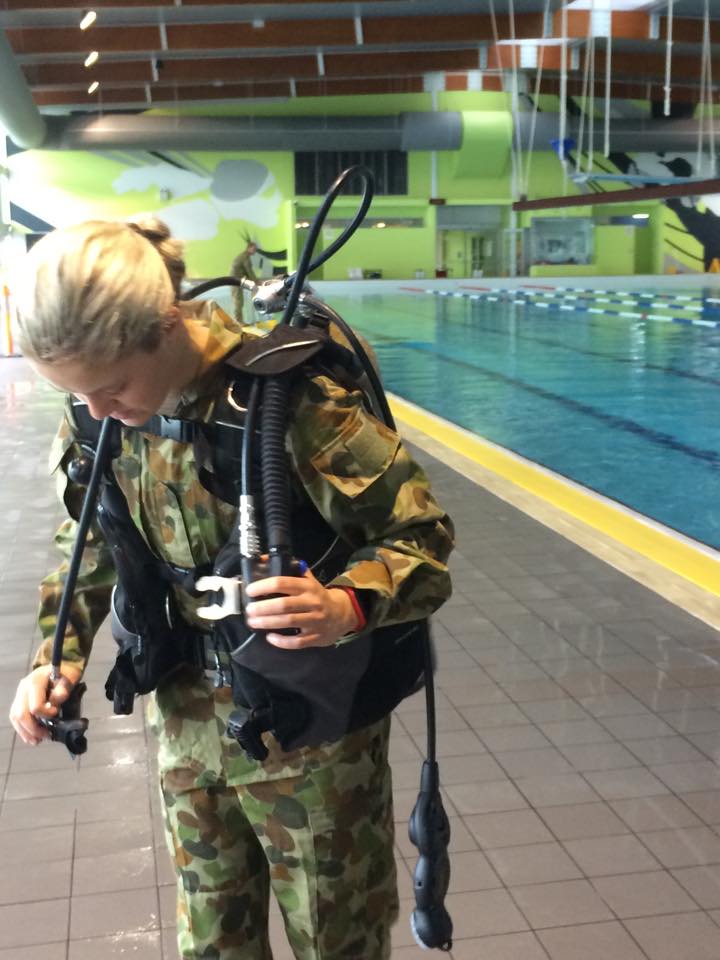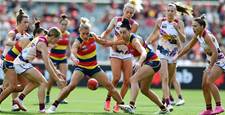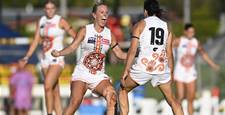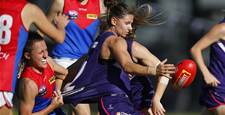For our nation ANZAC Day is the most sacred of days where Australians worldwide remember all who served and died in wars, conflicts and peacekeeping operations.
For our nation ANZAC Day is the most sacred of days where Australians worldwide remember all who served and died in wars, conflicts and peacekeeping operations.
Sport, including football, has been a part of the ANZAC story and to this day sport and service continue to walk side by side.
[More: Leopold Method's "We shall remember them" series]
Perth Glory premiership midfielder and active servicewoman Gabe Marzano speaks about her experience of the ANZAC legacy and football’s impact on her service.
As an active servicewoman, what does ANZAC Day mean?
As an active servicewoman ANZAC Day means commemoration.
The entire Army, all of the Australian Defence Force - we all stop to commemorate and pay our respects.
It's difficult to describe the emotions you feel during the Dawn Service because as a current serving member, it's a special thing to serve in the footsteps of the ANZACs who our entire nation remembers so fondly.
Not only the ANZACs though, I believe ANZAC Day serves as a beautiful commemoration to remember our brothers in arms who have made the ultimate sacrifice on the more current Military Operations, and that's a real thing, a real presence in the modern day Army.
It's a special day for a lot of people.
How has the ANZAC legacy influenced you and your decision to serve?
The legacy of the ANZACs is like nothing else. I think the ANZAC spirit really encapsulates what it means to be an Australian.
You can even see it these days during times of hardship, like during a natural disaster, that mateship and camaraderie that we patriotically posses as Australians.
I believe that's all derived from those qualities that the soldiers, the ANZACs, exemplified on the battlefields during World War I.
That was a huge character thing for us if you read into the history of the Gallipoli, the ANZACs were like none other; those typical qualities and demeanors that epitomise being 'Australian'.
"The legacy of the ANZACs is like nothing else. I think the ANZAC spirit really encapsulates what it means to be an Australian."
I also think that's particularly why the commemoration is still so profound, because of our nationhood - we're proud of our history and we're proud of our identity.
We're Australians. So certainly, I think my decision to serve and to continue serving is influenced by this.
How will you be commemorating ANZAC Day?
I will be greeted with a fresh morning start and will be commemorating with a Dawn Service here at RAAF Base Amberley (Queensland).
My Unit, 6 Engineer Support Regiment, will be heading over to our neighbouring unit where the Dawn Service will be held.
Then I'll be heading into Brisbane City to watch the parade and fully embrace the day which I think will be quite special this year considering it's the centenary anniversary.
I'll also head down to the RSL in good ANZAC Day fashion and try my luck at 2-up!
I want to catch the ANZAC Day coverage on ABC in the afternoon too - tune in to see the 100 year service that's held at the Commemorative Site in Turkey. Then I'm off to training (haha).
In your experience, what has been the impact of the past generation of women service on the current generation?
That's a pretty topical question.
There's a big push for this concept of 'pathway to change' in the ADF over the past few years, with gender restrictions removed and I think that's a big step forward because it can only mean increased capability.
Not only lifted gender restrictions though, there's a big cultural change ADF-wide in relation to females and gender equality and I think that just works hand in hand in our ever-evolving social norms. So for me personally, this is quite applicable.
I was actually mentored by two very competent, professional Officers when I was going through RMC-Duntroon in my initial Officer training and I believe those the high achieving female Officer's set the bar for us and the provided a good outlook on what it means and what it should mean to be a female Officer in the Army.
So that's had a big impact on me. I think the most important thing is just to be competent, be professional and always perform to a high standard and there's never really any dramas.
We're right in the midst of this pathway to change concept, spear headed by some very senior Officers in the ADF, and the Army is a great organisation, so it's all looking positive.
"I strongly believe football has made me who I am today and there's many things I've learnt from football that I've been able to utilise that have helped me become the Officer I am."
Why do you continue to serve?
I continue to serve for a variety of reasons. The aforementioned reasons are encompassed in that.
I love everything that the ANZAC spirit is about and what being 'Australian' means and those qualities - the mateship and camaraderie, even the larrikinism and ingenuity, is profound in the Australian Army.
I continue to serve because there's so many great opportunities in the Army and so many experiences you can't find in many other organisations.
[More: Video - Marzano discussing service and football]
I love what the Army is about, I wanted to join for the challenge and there's certainly aspects of my career thus far where I have been challenge (and I'm sure many more to come).
"I have a lot of pride as a serving member."
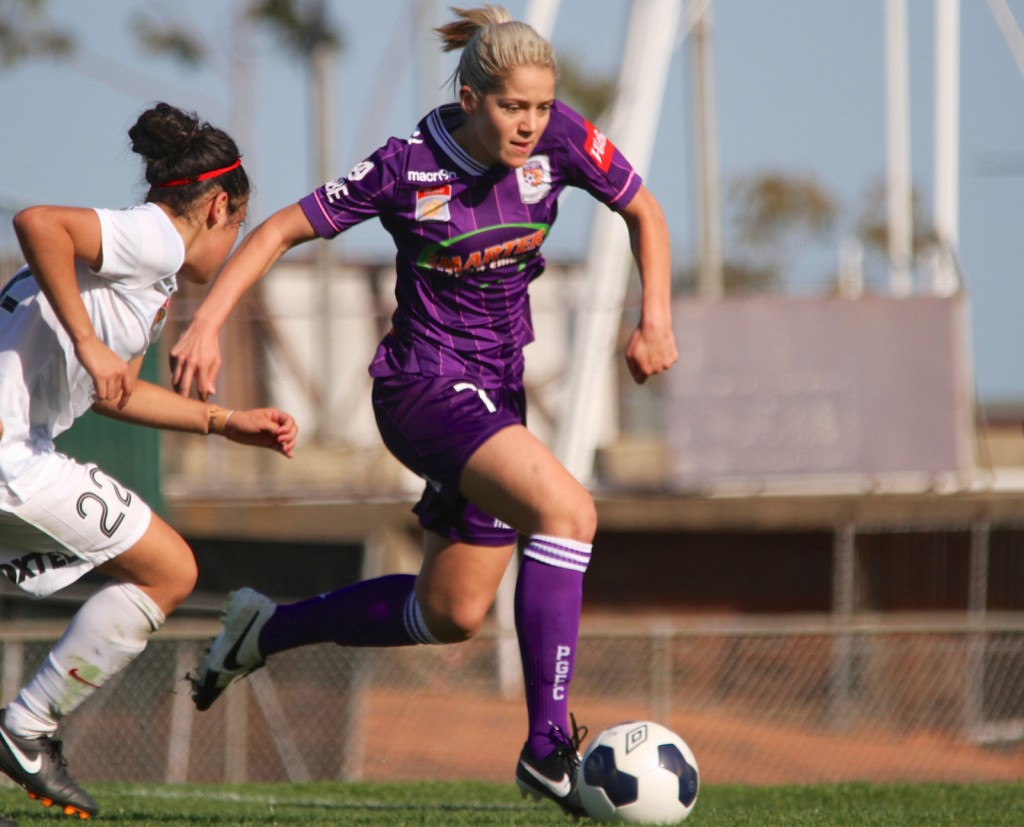 Photo: The Women's Game
Photo: The Women's GameAnother aspect is also the sporting opportunities afforded in the ADF such as representing the ADF and touring all over the world once every 2-3 years.
At the moment, I would probably serve for the rest of my life if the ADF is going to be so supportive of my sporting endeavours and aspirations. Being able to play in the W-League whilst juggle an Army career doesn't come around very often!
All these things contribute to why I continue to, and enjoy continuing, to serve.
What part, if any, does football play in your service?
For me personally I do think football plays a role in it, especially being in this miraculous situation I've now found myself in (juggling both the W-League and an Army career).
"I've found that football has taught me a lot of different things that are translatable to my Army career (and of course vice versa)."
For example; the emphasis of teamwork that is obviously present on the football field but also has such a big presence in the Army, especially during my initial training.
Different things such as leadership skills that I'd learnt throughout my youth football days, that's certainly been extremely helpful in the Army.
Related Articles

Column: Back-to-Back and Better Than Ever

The Aussies at the U.S Women’s Open


